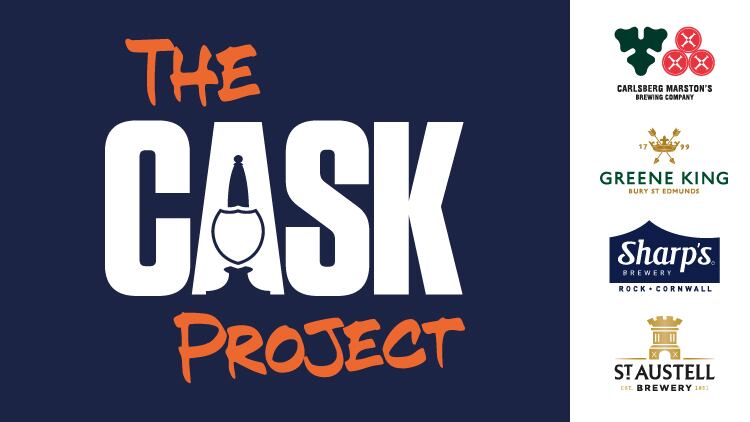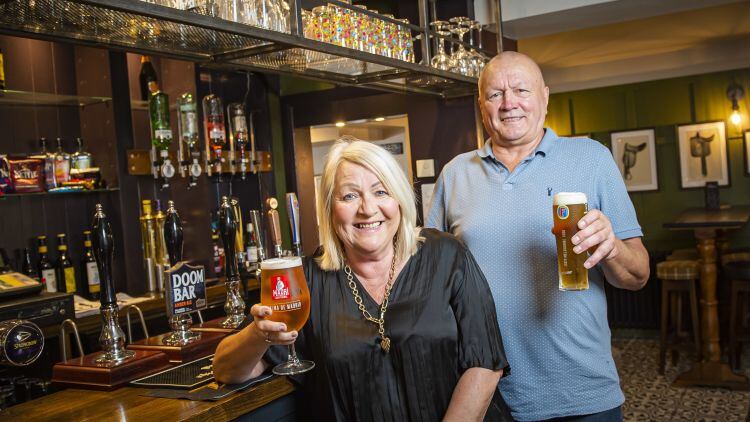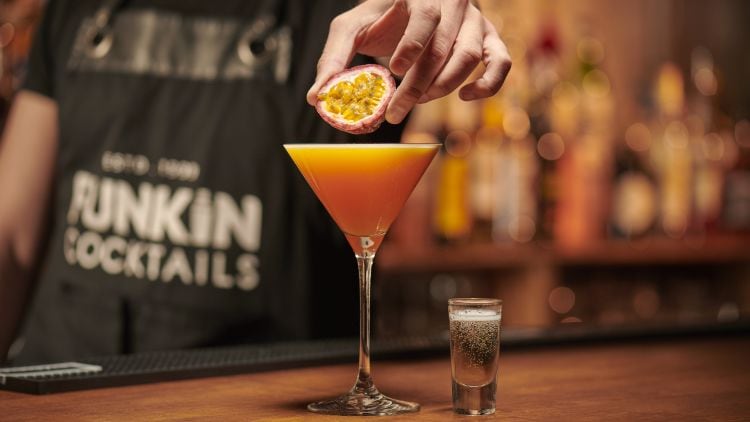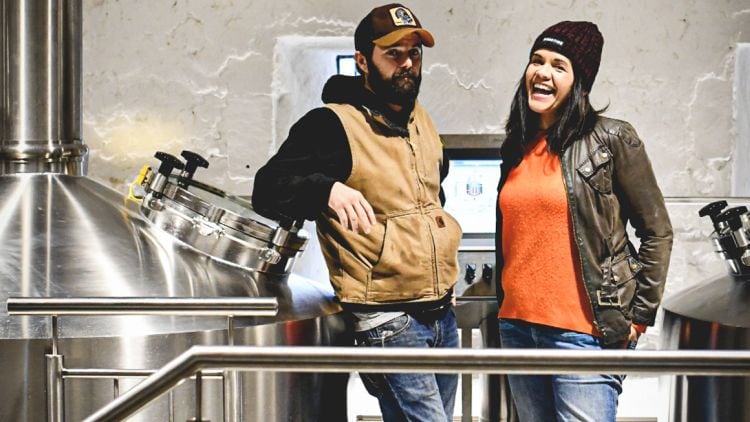The Cask Project
The Morning Advertiser launched The Cask Project in a bid to re-energise the category and reinstall it in pride of place on the bar of pubs throughout the country.
Cask beer is in long-time decline and, having joined forces with some of the UK’s leading cask beer suppliers – Carlsberg Marston’s Brewing Company, Greene King, Sharp’s Brewery and St Austell – we want to reinvigorate attitudes within the trade to a product which should be rightly cherished by operators.
Cask beer is a unique product that can only be replicated successfully within pubs but the perception of cask, particularly among younger drinkers, is that it is made and loved only by an ageing male population.
We want to create a real buzz about cask to get pub owners, operators, general managers, bartenders and all pub staff on board and debunk the myths surrounding the drink and educate them on how to make cask work for their business. And by doing this, we can pass on that knowledge, care and skill into cask beer at the bar for customers to get excited about too.
Tell us about Vocation’s attitude towards cask ale:
Cask is a really important part of our offer, which is perhaps slightly unusual for a leading craft brewery. For us, the cask category is all about quality and consistency, while also driving innovation with seasonal beers and specials, in the same way we have done with our kegs and cans. We’ve ramped up our cask offering considerably since the on-trade reopened after the pandemic.
After two years of lockdowns and consumers not being able to go to the pub, we thought it was important that we played our part in helping encourage people back out into pubs again. During lockdown we had huge success with our special releases and limited editions, which has become an ongoing focus for us. Now we’re seeing the benefits of the same commitment to inspiring innovation with keg and cask releases too.
We have produced cask-strength versions of our stronger limited editions as well as seasonal and limited-edition cask brews. For example, our Chop & Change single varietal cask beer is now available as a Mosaic version, following the very successful releases of Eclipse, Galaxy, Citra and Simcoe versions. They are available to the independent on-trade as well as through our on-trade wholesaler partners.
We have also launched a number of collaborative beers on cask with other leading craft breweries. For example, we have brewed Fruit Bat Ninja cask beer with Cornwall-based Verdant Brewery, which was an amazing success as was our collaboration with Amundsen. Our next release is the outstanding Karate Kiwi, a collaborative special release with our friends at Overtone Brewery.
What would Vocation’s advice be for a pub operator wanting to sell cask beers?
Quality is everything when it comes to cask and for the quality to be right, the throughput needs to be right. Ideally a nine-gallon cask should last no longer than 3-4 days. After this point, the quality will start to drop. The fresher the beer, the better. Where pubs can easily go wrong is by offering too much choice and therefore reducing the throughput on each cask line. While choice is desirable, it should not be at the expense of throughput. If throughput drops, so too does the quality and consequently so does the customers’ trust in your ability of an outlet to keep good cask ale and therefore they will opt for the safer option of a keg product.
Skill and care are required to look after cask and great cask beer is a very good indicator to customers of a well-run and well-looked-after pub. It’s a sign to the customer they can trust the pub across the board – from its drinks to its food menus to any events that the pub puts on. A well looked-after cask offering is something that differentiates a pub from an outlet up the road that doesn’t have the time or energy to have cask. With a little bit of time, consideration and care, a decent cask offering can really provide a venue with a fantastic point of difference and reason for consumers to visit the pub. Great cask is a sign of a great pub.
In terms of how to market it, staff training and product knowledge are essential, both in terms of how to look after the beer, and also about the beer itself and the brewery that makes it. Offering samples is also a great opportunity; try before you buy will encourage consumers to try new beers especially when backed up with some product knowledge.
We, and most breweries offer in-pub brand training for licensees to teach them everything they need to know about the beer, to add value.
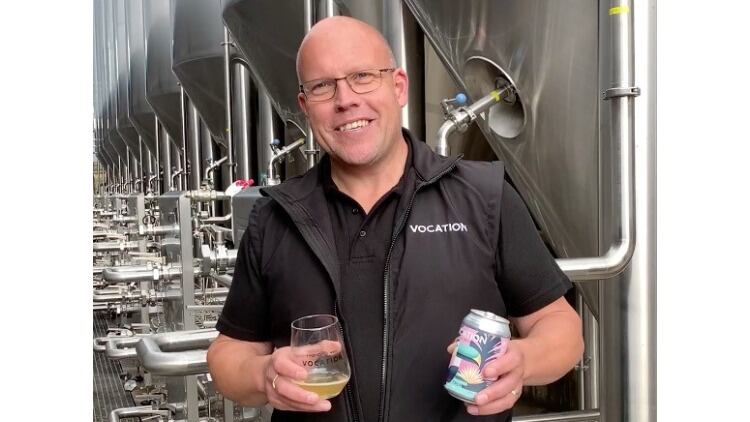
Vocation cask beer and advice
1) Our best-seller is our Bread & Butter 3.9% ABV Dry Hopped Ale – a mid-strength, sessionable, mass-appeal beer. It contains Simcoe and Mosaic hops.
2) Our Heart & Soul 4.4% ABV beer is a session IPA and is also gluten-free.
3) Our classic, American-style pale ale Pride & Joy 4.8% ABV is another easy winner, with its flavours and aromas of mango, citrus, earthy pine, and tropical fruit and blueberry.
4) Our higher ABV cask options, such as Life & Death, will satisfy a particular drinking occasion. At 5.5% ABV, our cask-strength Life & Death is a premium IPA that will be extremely popular with drinkers after a beer with a higher ABV.
Considering what is local to the brewery is also a really important part of choosing a cask offering in any venue. People are naturally more engaged with a local product. So many breweries out there have high-quality cask offerings – why not look at what your most local breweries are doing with the category and what they have to offer? It is then imperative staff are trained to give valuable information about these products to consumers to enhance their cask experience and encourage them to come back for more.
Cask beer, like any other drinks in the on-trade, needs to be served in the correct glassware and at the right temperature, of 11°C to 13°C, ideally. The wrong glass can ruin the whole experience. I recall being served a cask beer in a Strongbow glass and once in a Coke glass, which totally ruined the experience for me.
A pub’s food offering is usually very carefully served, using particular plates for particular courses, and the right, clean, cutlery. Cask beer should be treated in exactly the same way in terms of how it is served – in the correct, branded, clean glassware.
Do you think cask beer is seen as old-fashioned by some customers?
Cask beer undoubtedly can be seen as an old-fashioned beer, one made by very traditional breweries producing best bitters and brown ales and drunk by older men. That is not what we produce at Vocation. We produce hop-forward, modern pale ales and IPAs that not only go into keg and can but also into cask. That is the difference. Cask is unique to the UK. It is something that should be celebrated and offered in many different styles.
We produce the same liquids from the craft sector of the supermarkets and in cans but in cask format. We bring the same innovation that the craft sector has to keep bringing out new and interesting beers within cask. This is something that the sector is currently short of: interesting, new and hop-forward beers.
We find that driving the innovative, unique craft approach into the cask market can be very beneficial, using innovative styles with eye-catching names and branding. For us, it is all about driving something that’s different, that’s intriguing and enticing to drinkers. We all like to discover new things and people will only want to try our cask beer if it looks different or somehow appealing to them.
When you go to the cinema, many people will buy fresh popcorn to enjoy while watching the film. Similarly, why would going to the pub not be enjoyable when you can have fresh cask beer? Having innovative styles of quality, consistent cask beer will help change younger consumers’ views about the category and make it more appealing for them. More craft style breweries producing cask beer will then pull more people into the category.
Should it be priced higher because it is a premium product and how can that idea be put across to customers?
From our experience, if the product is right for a venue and appealing to the customer, then the price is a lesser consideration. Cask beer has historically been priced too low and undersold, but we know that, like keg, if cask is given a premium price point, that helps to communicate to the drinker that it is a premium product to savour.
Perhaps there is an opportunity for procurement managers of pubcos to reflect on this. When brewers are given opportunities for guest listings in larger pubcos, the price stipulated often limits the style of cask beers that can be put on, which limits the range available to the consumer.
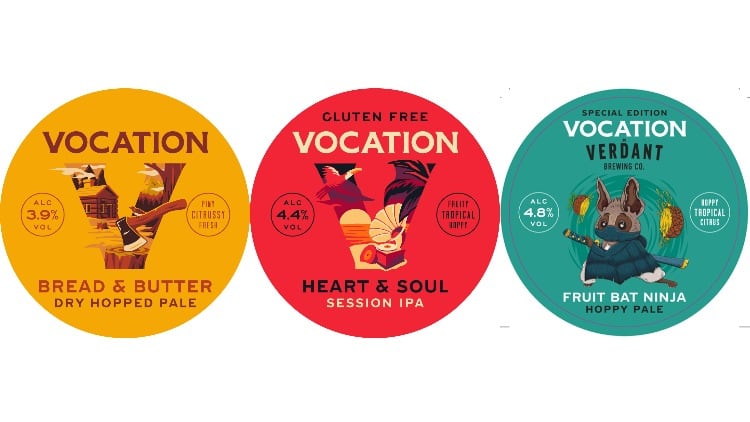
Cask beer has been driven down in value by some pubcos that sell it at a low price point. This has limited their range to low-hopped and, dare I say it, uninspiring beers and, as a consequence, damaging how cask is perceived by some consumers.
At Vocation, we are unwilling to lower the hop content and the quality of our raw materials to satisfy the pub companies, which put a low price point ceiling on their cask offering as we do not see any benefit to anyone in doing this.
How important is it to ensure such a UK homegrown product as cask continues to be made and is at the forefront of pub life?
Cask beer is a unique offering that can only be experienced in the on-trade. It’s the only category in the pub that cannot be replicated at home and is the best reason to go to the pub, if it’s done properly. We should all be focusing on it following two years of lockdowns, to help entice people back into the pubs.
What do you see as the future for cask?
If everyone supported the opportunity for cask beer, it should become a growing sector once more. Cask beer is the purest, freshest form of beer there is. As a craft brewer we would love to be part of that growth and we will do all we can to take the category forward. We are continually working on our cask offering and we are seeing great growth and success from it.
We believe the larger breweries should also focus on the importance of cask. A few of those larger breweries were known for their cask offering a few years ago, but it seems that in more recent years it has been overlooked. We feel a lot of the innovation has gone from the category, and that needs to be revived.
Vocation Brewery is an independent craft brewery based in Hebden Bridge, Yorkshire, founded in 2015 by John Hickling, with just himself, a rebuilt chicken shed and a dog for company. The brewery now has 60 staff and sells the equivalent of 14 millions cans per year.

